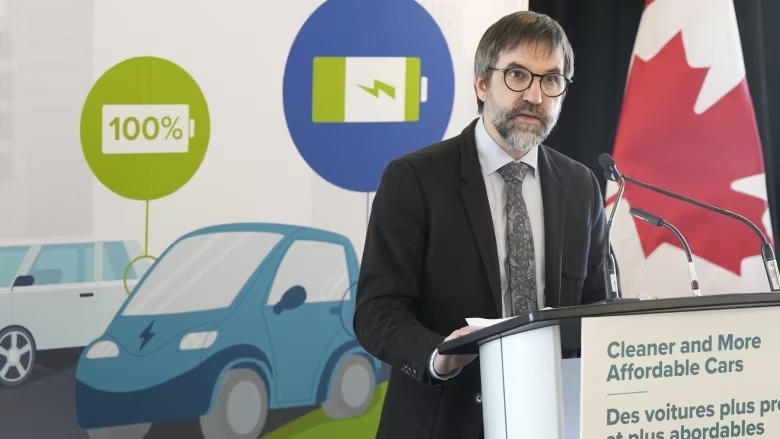For gas-powered cars in Canada, the end of the road is near.
This week, Environment Minister Steven Guilbeault released new regulations that will, in effect, stop selling brand-new passenger cars that run solely on gasoline or diesel by 2035.
According to Guilbeault, the Electric Vehicle Availability Standard will incentivize automakers to increase the number of battery-powered cars and trucks that are offered in Canada.
“It is impossible to mistake. We are at a tipping point,” he said, noting sizable growth in EV sales in Canada and demand that has previously outstripped the available supply.
Carmakers will have to phase out combustion engine cars, trucks, and SUVs over the course of the next twelve years by yearly increasing the percentage of electric models they offer for sale.
The electric-vehicle sales mandate regulations will be published later this week. They are setting up a system in which every automaker will have to show that a minimum percentage of vehicles they offer for sale are fully electric or longer-range plug-in hybrids.
It will progressively increase from 20% in 2026 to 23% in 2027. Following that, EV sales will start to rise significantly faster, with EVs accounting for 34% of all sold vehicles by 2028, 43% by 2029, and 60% of all vehicles by 2030.
That percentage keeps going up until 2035, when it reaches 100%.
In the first three months of this year, about one in ten newly registered vehicles were electric; this suggests that over the next three years, EV sales must double.
hey already doubled in the last three years, growing from 38,425 EVs sold in the first nine months of 2020 to 132,783 in the first nine months of 2023.
Automakers will receive credits under the policy for the electric vehicles they sell, and it will be governed by the Canadian Environmental Protection Act.
Generally, a fully electric model will generate one credit, with plug-in hybrids getting partial or full credit depending on how far they can go on a single charge.







